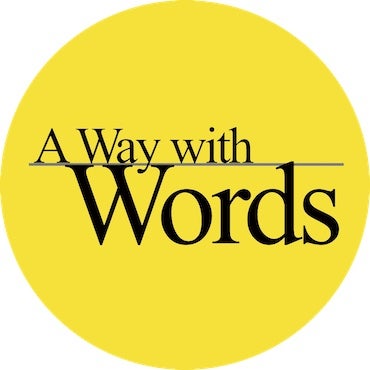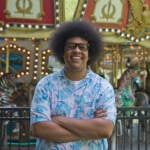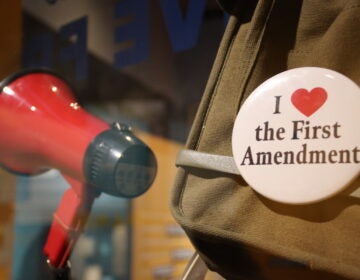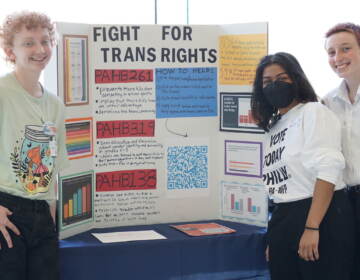Salman Rushdie addresses rising authoritarianism during First Amendment Summit in Philadelphia
“One of the preconditions for the rise of an authoritarian strongman is that people cease to believe in the truth,” Rushdie said.
Listen 1:04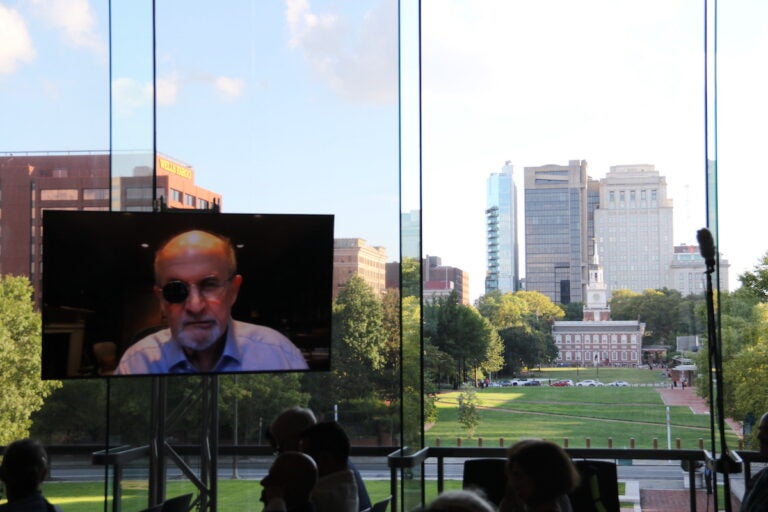
Salman Rushdie attended the National Constitution Center's First Amendment Summit virtually during the keynote conversation on Sep. 13, 2023. (Cory Sharber/WHYY)
From Philly and the Pa. suburbs to South Jersey and Delaware, what would you like WHYY News to cover? Let us know!
The National Constitution Center’s First Amendment Summit focused on the threats to freedom of expression and featured author Salman Rushdie as the keynote speaker.
On Wednesday evening, hundreds of people gathered in Center City for the virtual conversation featuring Rushdie and PEN America CEO Suzanne Nossel.
Rushdie participated virtually — more than a year after he was stabbed on stage in Chautauqua, New York, while attending a lecture series. He’s faced multiple death threats since his book, The Satanic Verses, was published in 1988, including Iran’s leader calling for his assassination in 1989, forcing him into hiding.
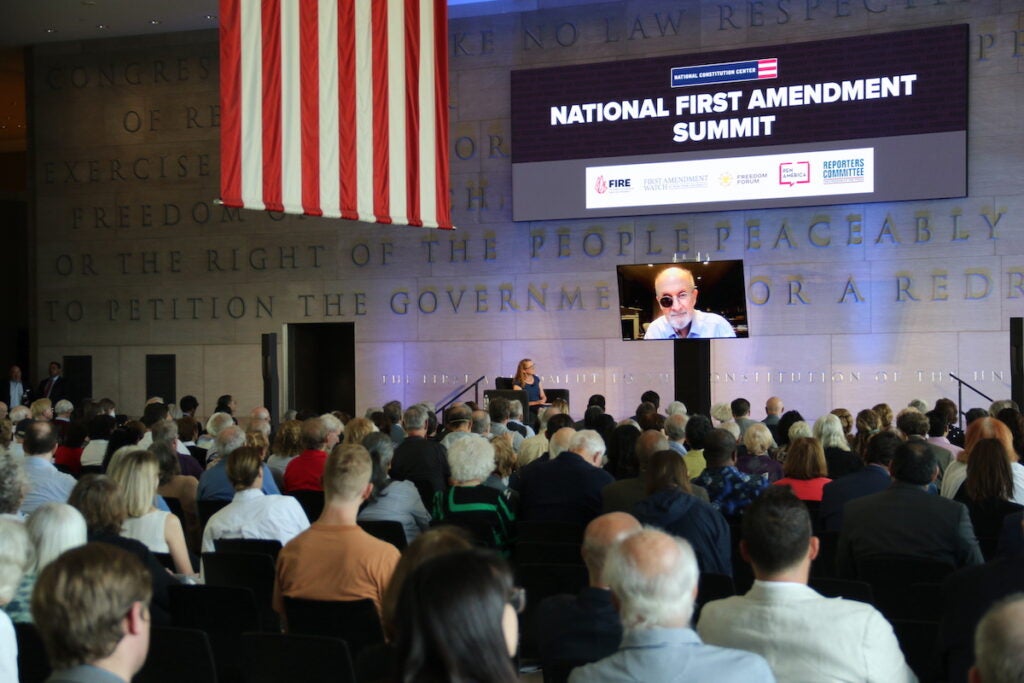
During introductory remarks, Rushdie said the First Amendment was one of the reasons he decided to move to America. He said if you asked him 10 to 20 years ago what the biggest threat to freedom of expression was, it would’ve been religious extremism.
“The destruction of Roe v. Wade being an example of what that could do,” Rushdie said. “I’m not sure that I would give that answer in the same way now because it in a way feels like a kind of 18th-century outset. It feels as if we are still fighting the Enlightenment. The Enlightenment fighting against what was then the main enemy of free expression, which was the church more than the state.”
He said instead we’re facing “another old enemy,” which is authoritarianism, citing the rising Hindu nationalism within India’s government.
“Populist authoritarian demagoguery coupled with that, a willingness amongst at least some part of the population, to cease to value the democratic values enshrined in the First Amendment,” Rushdie said. “So I think the problem is, I would now say political more than primarily religious.”
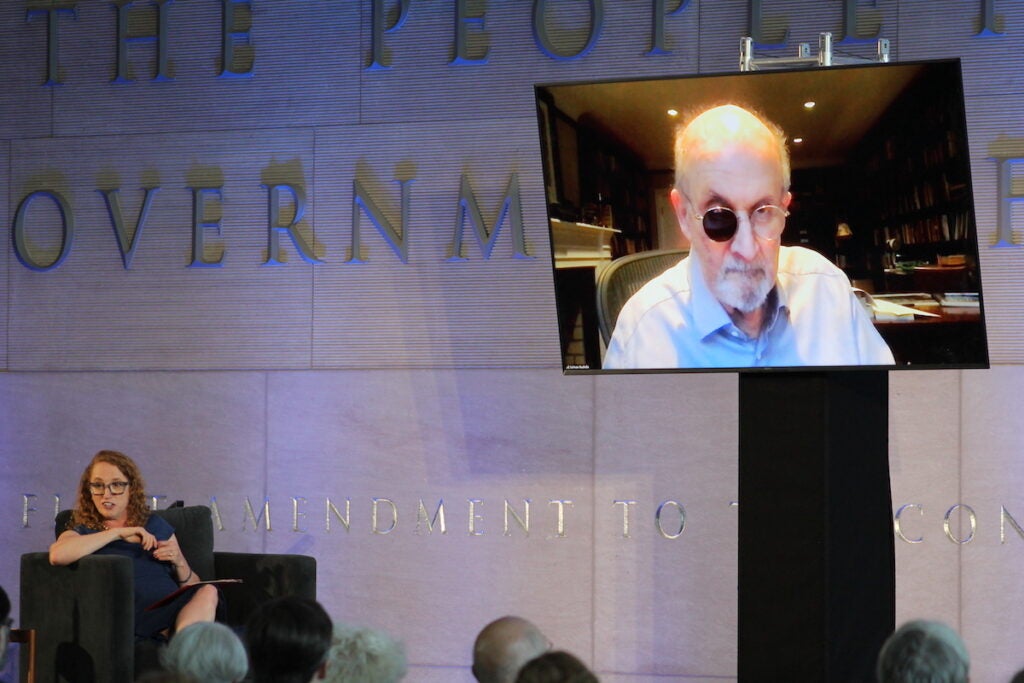
Rushdie was asked about the trend of book bans nationwide, which has been felt locally within the Central Bucks School District. He said attacks on both education and the “absolute value of the truth” have “been to some degree successful.”
“One of the preconditions for the rise of an authoritarian strongman is that people cease to believe in the truth,” Rushdie said. “People are told so often that what everything they’re being told is a lie that they begin to internalize that, and at that point, the demagogue, the authoritarian, could rise to his feet and can say, ‘I am the truth. Believe me because I am the truth.’ That’s how dictatorships start. That’s how tyrannies rise. And we are seeing phenomena like that in this country, but around the world as well.”
Nossel said they were honored to participate in the keynote conversation and hoped the event reenergized those in attendance to continue fighting for free speech.
“I think there is a rising generation that feels sometimes alienated from free speech,” Nossel said. “That free speech is a smokescreen for hatred, that it’s not relevant to the struggles that they’re waging, whether that’s for racial justice or gender justice or climate action. And, you know, it’s just the opposite. Free speech underpins our ability to advocate for all of those causes. It has made possible every great social movement in this country.”
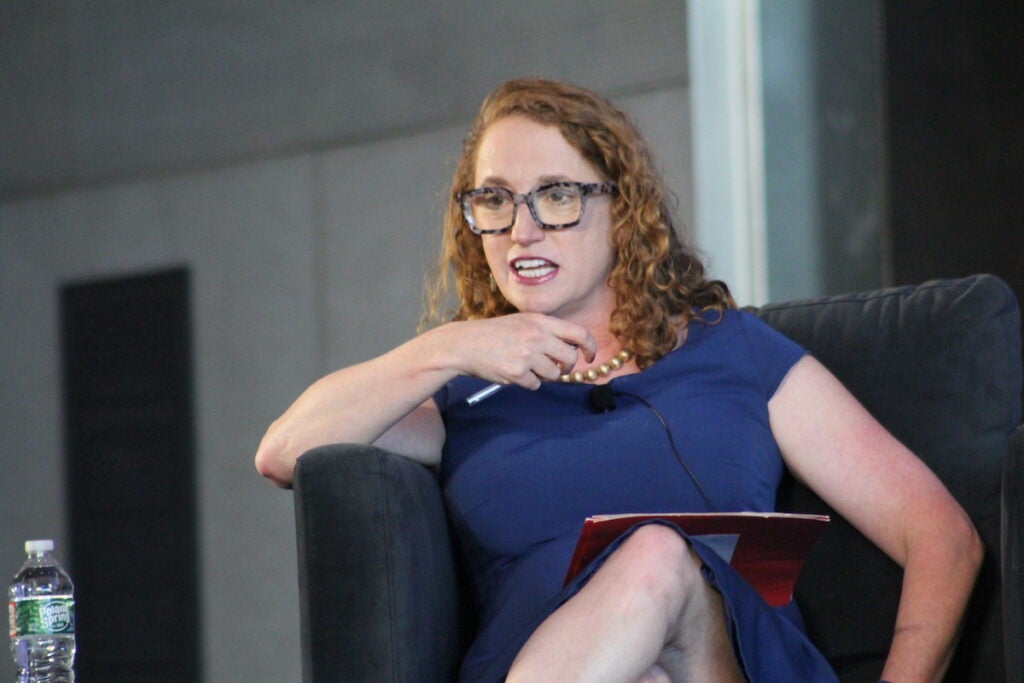
Other panels focusing on the First Amendment also took place, featuring free speech advocates and educators, including former ACLU President Nadine Strossen, who is the first woman to have held the position.
When speaking with WHYY News ahead of the event, Strossen said free speech is “under assault every single day” from “all ends of the ideological spectrum.”
“As a full time educator and advocate, I have come to see that the more people know about the actual principles of free speech, as opposed to the distorted caricatures that people attack when they criticize free speech, the more people understand what it really stands for and how dangerous censorship is the more they support it, ” she said.
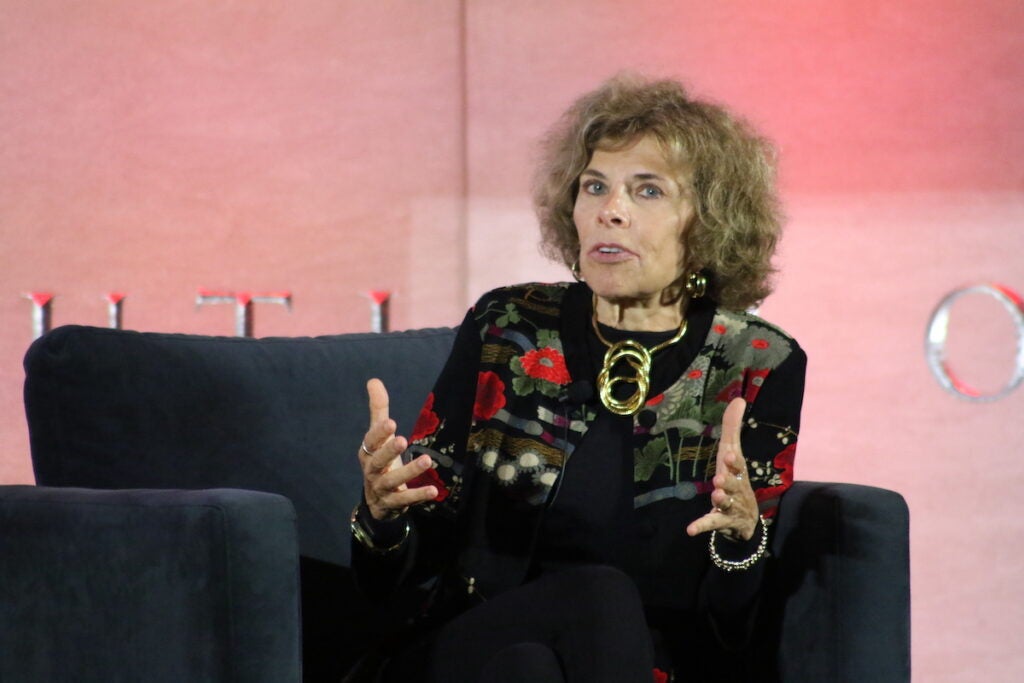
“Most people believe in freedom of speech for me, but not for thee,” Strossen said. “I want people to understand that they are never going to have freedom of speech for me unless there is also freedom of speech for thee.”
Bruce Brown is the executive director of the Reporters Committee for Freedom of the Press. One of his priorities Wednesday evening was to emphasize the importance of press freedoms guaranteed by the First Amendment, and anyone who is performing a “journalistic function” must be protected.
“It’s important to recognize that some of the arguments that used to carry First Amendment freedoms in recent years may not be resonating as much,” Brown said. “I think we do need to kind of get back to fundamental principles and think deeply about how we can educate the next generation on the importance of these freedoms so that they remain robust in the future.”

According to Article 19’s Global Expression Report, the United States ranks 21st out of 161 countries. Freedom House’s Freedom In The World report, which focuses on individual freedoms including freedom of expression, placed the U.S. at 60 out of 210 countries.
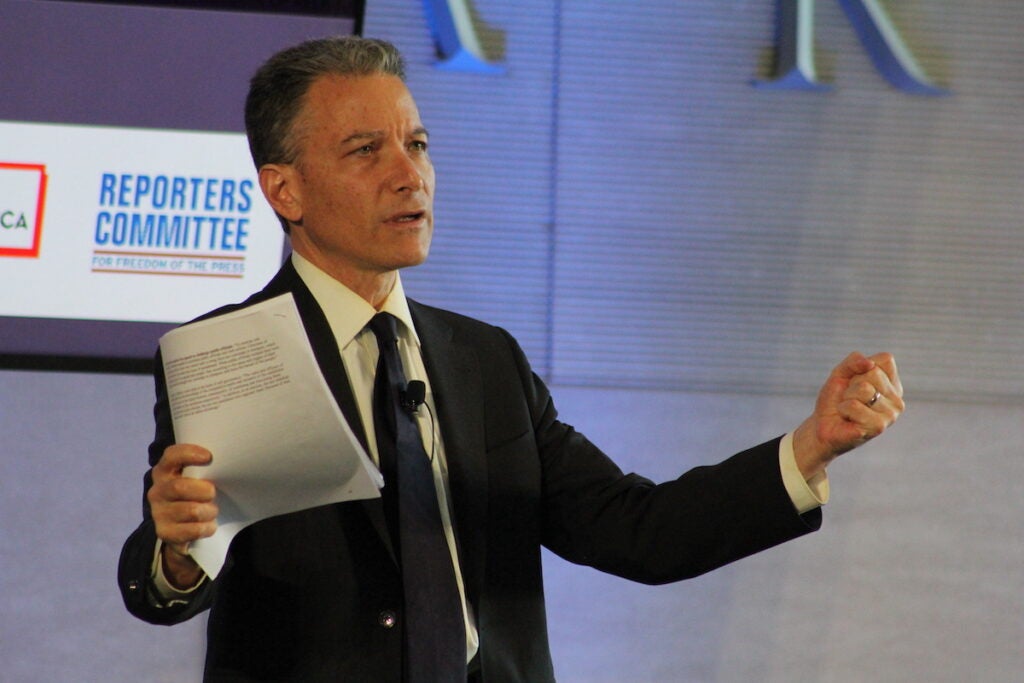
Last Wednesday, the National Constitution Center opened its First Amendment Gallery, which includes interactive elements and a letter written by George Washington to the Quakers in 1789.

Get daily updates from WHYY News!
WHYY is your source for fact-based, in-depth journalism and information. As a nonprofit organization, we rely on financial support from readers like you. Please give today.

